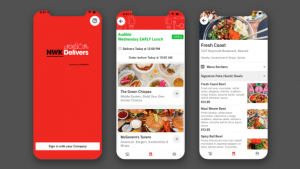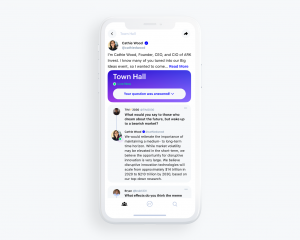 Image courtesy of Pexels
Image courtesy of Pexels
In the crazy world we live in today, you and your employees are likely working from home. Your business is also likely suffering from the economic impact of the novel coronavirus, which shuttered much of the world, especially retail and entertainment. But, as the world starts to open again, you may need to hire more staff either because you lost employees during the shutdown or because you’ll need additional employees due to the requirements for reopening. So, even as you’re working from home, you need to begin the process to interview and hire now. It’s important to note that process for interviewing and hiring remotely is quite different from the hiring processes you’re used to. Here are 5 five tips that help you get interviewing and hiring remotely right.
Be honest with your job description
Although honesty is important in any job description, when you interview and hire remotely it’s important that you are very clear about what is expected of a candidate from the get-go, since they won’t have the insights gained from visiting your place of business to see how the business operates and talk to existing employees.
Also, different firms handle the crisis differently, so it’s important to articulate expectations during the pandemic that differ from normal business operations. Hence, you need to provide more clarity in your job descriptions so applicants know exactly what is expected of them if hired. Here are just some of the questions you may want to answer within your job description.
- Are they required to come into the office a few days a week? Every day? Will the position transition to 100% office-based in the near future?
- If they work remotely for at least part of the time, do you want them to be online during certain hours of the day, or is there some flexibility as long as they work a required number of hours per week? How will you monitor to ensure they perform the requisite remote hours?
- Who provides the necessary equipment and internet access? Will they be reimbursed if they use their own resources?
- What security protocols are in place to protect their privacy, as well as those they might interact with remotely?
- How do you want to contact them?
Make sure you have some face-to-face time
Face-to-face time is essential if you want to ensure you are making the right talent acquisition decisions. You may not be able to meet candidates in your office, but you can call them using video conferencing software or a virtual interviewing platform. Face-to-face interviews are about so much more than simply seeing how your potential candidates present themselves. These meetings enable you to see how candidates communicate, especially how they think under pressure, how tech-savvy they are, and if you can effectively communicate with them via a virtual means in the future.
Allow other team members to interview candidates too
Just because a person’s role is remote for the moment, doesn’t mean they aren’t part of your team and won’t have to work effectively with other team members. To ensure the candidate is a good fit for your team and that they are going to get along with other members of the team they’ll work with extensively, involve some of their prospective team members in the interview process, preferably in a separate meeting, then ask for feedback and impressions formed from those meetings. Not only does this ensure team cohesion but it gains buy-in from the team to ensure team members feel valued.
Assess the written communication skills of candidates
When it comes to working remotely, communication skills are extremely important, and that includes both written and verbal communication. You must assess a person’s verbal communication skills during their interview, but you may also want to assess their writing skills by looking at emails they sent you or by using a few written tasks to evaluate performance.
Take your time
When it comes to virtual interviews, there’s a tendency to rush the process since scheduling is easier and so many people are out of work resulting in a massive applicant pool. Remember to take your time, set out your questions in advance, but also leave plenty of extra time to have a more informal conversation. If your video conferencing software has a time restriction, then don’t be afraid to schedule multiple interviews with a potential candidate and don’t end the interview until you have got the information you need.
The process when you interview and hire remotely, without meeting a candidate in person is daunting, but with more employees and companies fostering flexible working, it’s an important skill to master to support the growth of your firm.
Business & Finance Articles on Business 2 Community
(60)
Report Post






